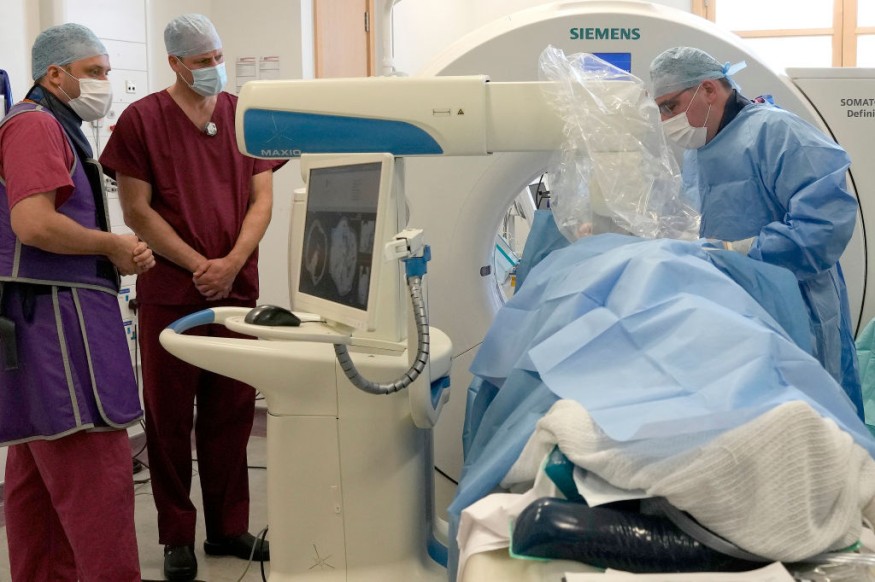
For the first time ever, an investigational cancer-killing pathogen was injected to a sentient subject, with the expectation that the study may eventually disclose proof of a new method of productively attacking malignant cells in living organisms.
New Clinical Trial for the Cancer-Killing Virus
As per ScienceAlert, the therapeutic prospect, CF33-hNIS (aka Vaxinia), is an oncolytic virus, which is a genetic engineered pathogen meant to infiltrate and eliminate cancerous tissue normal tissue.
In the instance of CF33-hNIS, the altered pox virus replicates itself via invading lymphocytes. The afflicted tissue subsequently explodes, producing hundreds of additional pathogens that serve as antibodies, encouraging the white blood cells to target neighboring malignant cells.
Earlier studies in laboratory animals have demonstrated that the medicine can use the immune function to chase down and eliminate cancerous neurons, however hardly any medical testing has taken place.
The drug's co-developers - the City of Hope cancer treatment and development facility in Los Angeles and Australia-based biotech business IMUGENE - have now announced that the inaugural medical study in healthy patients is already begun.
According to Daneng Li, a City of Hope oncologist and primary researcher, earlier studies revealed that oncolytic viruses may activate the immune function to react to and eliminate malignancy, along with induce inflammation to be more receptive to other monoclonal antibodies.
Experts suspect that CF33-hNIS has the order to enhance clinical outcomes. Accessing that opportunity will require initial demonstrating that CF33-hNIS is appropriate for patients to receive, with the opening aspect of the research focused on the medication's efficacy and acceptability.
The treatment is anticipated to include 100 elderly patients with aggressive or severe firm malignancies who have repeatedly attempted at least 2 courses of conventional therapy. These participants will be recruited in the research and will obtain modest dosages of the investigational medication either internal combustion or orally.
If the preliminary test as claimed by the Cancer Research Institute, is positive and CF33-hNIS is judged secure and well absorbed, more research will be conducted to see how the medicine interacts with pembrolizumab, a current antibodies therapy used within therapeutic antibodies.
Effectivity of The Cancer-Killing Virus
The pathogen in drug testing currently generates sentient sodium iodide symporter, a receptor that allows investigators to scan and regulate DNA infection while also permitting gamma radiation to be used to kill malignancy tissues.
Prior to actually determining effectiveness, experts will examine how well the medicine is tolerated by participants, documenting the occurrence and intensity of every adverse reaction, and assessing how individuals cope when low dosages are increased.
Supplementary indicators, such as evaluations of how efficiently CF33-hNIS reduces treated cancers, will be assessed subsequently, however with the study scheduled to last two years across numerous outpatient clinics, we won't know the outcomes in full for a while, as shown in the study posted under the journal of Molecular Cancer Therapeutics.
In his statement, surgical oncologist Susanne Warner, affirmed that unless the substance is found to be reliable and well-tolerated, we may be staring at a highly sophisticated device for combating cancer cells, outlined as a game-changer because of how strong it is and because of its attract and retain as well as stimulate inflammatory responses.
No one really understands for sure if CF33-hNIS will function the identical miracles in humans, but if it does, it will be only the second FDA-approved oncolytic virus treatment for the disease, pursuing on the heels of Talimogene laherparepvec (T-VEC), a variant of the herpes simplex used in the therapies of malignant tumors.
Related article : Astronauts in their First Long-duration Space Missions Show Changes in Their Brains
© 2025 NatureWorldNews.com All rights reserved. Do not reproduce without permission.





